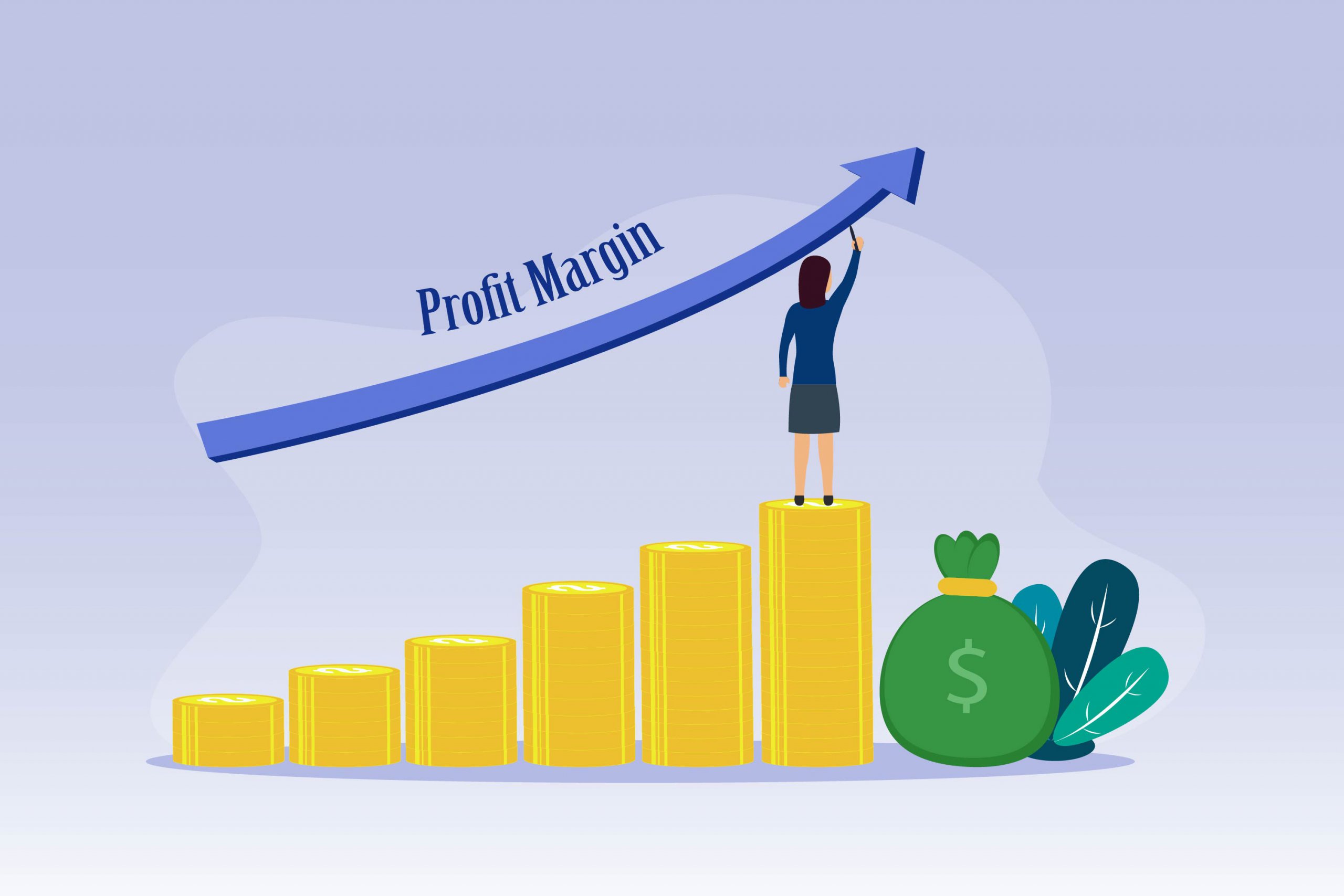A Master’s in Business Administration (MBA) graduate or accountant with profound accounting and financial knowledge may determine a clear distinction between the terms Profits and Profitability. For a businessperson, it is not that hard either since we know that any business stands strong in the market because of the profits it makes. When it comes to business growth and expansion, Profits and Profitability play an influential role in defining what is suitable and what is right for a company, whether the financial grounds or bookkeeping records are favorable or not. One thing is clear, regardless of size, businesses need to track their profit margin to make wise financial decisions that are important to the organization’s objectives and strategies.

Profit vs. Profitability
Profit and profitability are two terms that are often used interchangeably; however, they are not the same. The interpretation of both terms is different, and those who can interpret them correctly can expect to experience financial success in their company. To determine whether a company is financially sound or not, business owners and investors need to track the company’s profit apart from its profitability. To keep the business afloat, you need to ensure a smooth working capital and cut business costs and expenses as much as possible. In simplest terms, whatever amount is left after subtracting the total expenses from the total revenues is profit. Similarly, the profit margin is the ratio between the net income and total sales as it is measured as a ratio or percentage.

Defining Profit
If you are a professional accountant or bookkeeper, calculating a company’s profits will not be difficult. You need to add the total revenues and subtract the total expenses to get the amount of total profit. Essentially, profit is an absolute term, and there is a simple formula for calculating it. If you need to determine profit, follow the formula below:
Total profit= Total revenue – Total expenses
Evaluating Profit
When we evaluate profit from a business perspective, we know that a company’s core objective is always to make a profit. Without making a profit, no company can survive in the market for long. Generally, if what is earned is invested back into the business, a company will grow slowly and gradually. However, profit alone as a measure of success can be deceiving. There are different routes to calculating a profit margin, and business owners need to note minor shifts in costs. Your income statement shows you whether you are making a profit or not. If the results are negative figures, you need to cut or readjust your business expenses or costs to ensure a profit.
Defining Profitability

The application for calculating profitability is a bit more complicated than calculating a normal profit. It involves percentages or ratios which show that profitability is the measurement of profit. Business owners need to ensure that their profitability index is positive to yield enough profit to sustain and grow, especially when the market competition is intense. A business requires careful financial tracking and controlling.
Profitability is the degree to which a business yields a financial gain. Although the company may be showing or realizing a profit margin and figures may seem to be attractive initially, this does not necessarily mean that the company is profitable. Profitability is matched and contrasted against many aspects of the business; you must learn the art of the game before calculating the exact profitability index for your firm. Since profitability is the relative amount (a ration or percentage), it shows or expresses a ratio between profit and revenue. The formula for calculating profitability or profit margin can be:
Profitability=Profit/Revenue*100
 About Complete Controller® – America’s Bookkeeping Experts Complete Controller is the Nation’s Leader in virtual bookkeeping, providing service to businesses and households alike. Utilizing Complete Controller’s technology, clients gain access to a cloud platform where their QuickBooks™️ file, critical financial documents, and back-office tools are hosted in an efficient SSO environment. Complete Controller’s team of certified US-based accounting professionals provide bookkeeping, record storage, performance reporting, and controller services including training, cash-flow management, budgeting and forecasting, process and controls advisement, and bill-pay. With flat-rate service plans, Complete Controller is the most cost-effective expert accounting solution for business, family-office, trusts, and households of any size or complexity.
About Complete Controller® – America’s Bookkeeping Experts Complete Controller is the Nation’s Leader in virtual bookkeeping, providing service to businesses and households alike. Utilizing Complete Controller’s technology, clients gain access to a cloud platform where their QuickBooks™️ file, critical financial documents, and back-office tools are hosted in an efficient SSO environment. Complete Controller’s team of certified US-based accounting professionals provide bookkeeping, record storage, performance reporting, and controller services including training, cash-flow management, budgeting and forecasting, process and controls advisement, and bill-pay. With flat-rate service plans, Complete Controller is the most cost-effective expert accounting solution for business, family-office, trusts, and households of any size or complexity.




